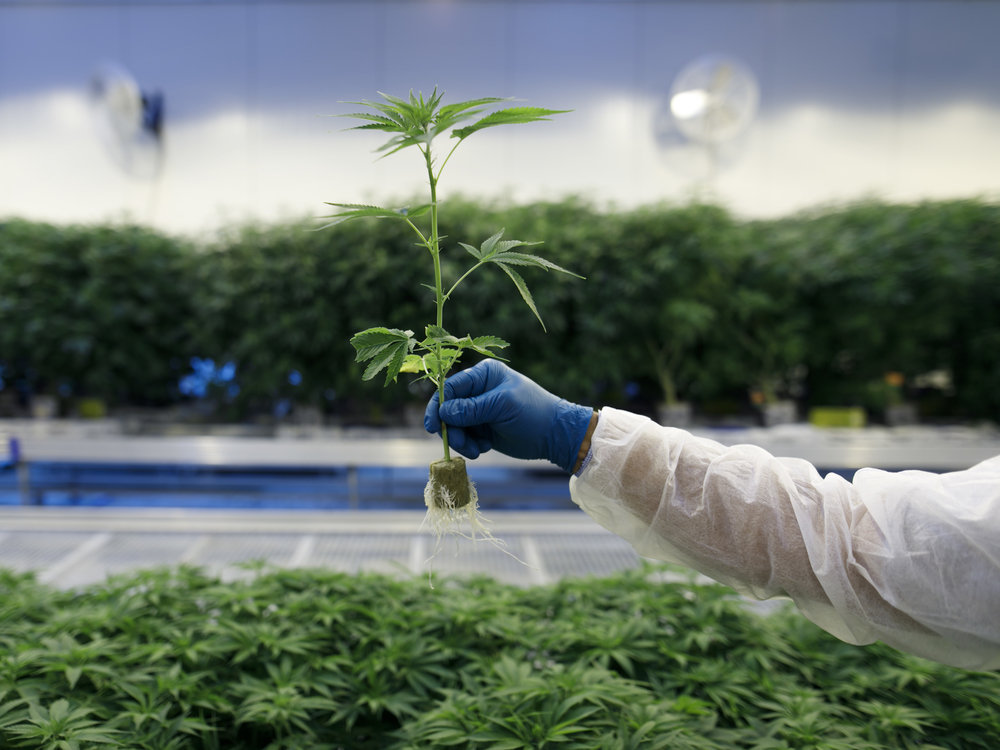You are here
Home 🌿 Cannabis Technology News 🌿 University of Ottawa developing device to measure THC to CBD ratio to help crops and cops 🌿University of Ottawa developing device to measure THC to CBD ratio to help crops and cops

The cannabis industry may soon undergo a seismic shift that will lie in the hands of growers.
Researchers from the University of Ottawa are working on a hand-held tool that measures the ratio of THC to CBD in cannabis crops.
Adam Shuhendler, an assistant professor in the school’s chemistry department, told CBC the test is quick, easy and cheap.
“Our goal is accessibility,” he said.
“Push a button and out on the screen comes the ratio of CBD and THC.”
The technology will help farmers figure out the perfect growing conditions for plants and whether their crops would be better suited for recreational use (normally plants with more THC) or medicinal use (typically plants with more CBD).
“Since the device is capable of detecting THC and CBD directly from vaporized or burnt samples (smoke, for example), rapid, low cost environmental sensing is also possible, which is important for enforcing zero cannabis use policies,” he said.
“For example, police officers can activate the sensor, which would provide an objective reading of THC and/or CBD in that vehicle, where cannabis use is currently prohibited under Canadian law.”

Police officers may be able to use the test to determine how much THC or CBD is in someone’s vehicle. James Park / National Post
Shuhendler said the team started developing the idea a year and a half ago. The device, which will be as large as an average-sized printer, uses a chip to detect a smoke or liquid sample of cannabis, and a reader will scan it. The results will be fairly accurate with a five per cent margin of error.
The most common way to get the THC to CBD ratio now is to analyze the compounds from the plants’ liquids, but only experts can do the test and only producers with deep pockets can afford them.
While the upcoming device doesn’t have a price yet, the test will only cost 50 cents.
“We were really happy with that number because that technique is quite laborious and quite cumbersome,” Shuhendler said,
He and the team created Ekidna, a company to produce and market the kit, while the University of Ottawa maintains intellectual property rights.
Shuhendler told CBC he didn’t know much about cannabis before the project but says the past year and a half has been “really eye-opening seeing the technology going into the industry.”
“It’s amazing seeing the science behind the industry and the efforts to evolve plants and to form plants with different medicinal versus recreational properties,” he said.
The device is expected to enter the market by mid-2021.
420 Intel is Your Source for Marijuana News
420 Intel Canada is your leading news source for the Canadian cannabis industry. Get the latest updates on Canadian cannabis stocks and developments on how Canada continues to be a major player in the worldwide recreational and medical cannabis industry.
420 Intel Canada is the Canadian Industry news outlet that will keep you updated on how these Canadian developments in recreational and medical marijuana will impact the country and the world. Our commitment is to bring you the most important cannabis news stories from across Canada every day of the week.
Marijuana industry news is a constant endeavor with new developments each day. For marijuana news across the True North, 420 Intel Canada promises to bring you quality, Canadian, cannabis industry news.
You can get 420 Intel news delivered directly to your inbox by signing up for our daily marijuana news, ensuring you’re always kept up to date on the ever-changing cannabis industry. To stay even better informed about marijuana legalization news follow us on Twitter, Facebook and LinkedIn.




